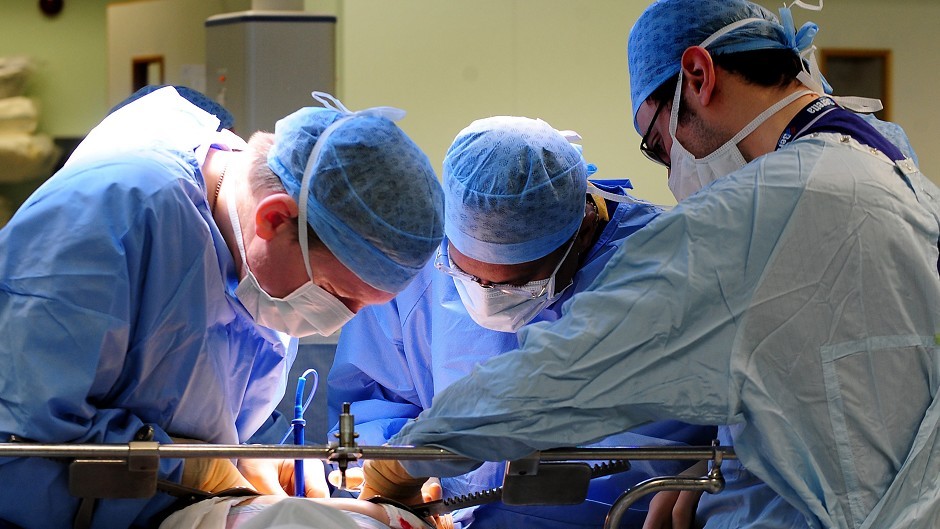A former theatre nurse who is suing NHS Grampian has said a patient died after surgeons operated on the wrong side of the brain.
Anne Croft made the comments this morning during her cross examination at an employment tribunal.
Mrs Croft is taking the action against the health board as she claims she was forced to quit her job at the north-east’s flagship hospital when her repeated concerns about cleanliness in operating theatres resulted in clashes with surgeons.
Anne Croft was told by four of Aberdeen Royal Infirmary’s (ARI) top doctors that she was “incapable of doing her job” after she queried numerous issues during surgeries.
Mrs Croft was eventually signed off with work related stress and now claims that as a result of her concerns not being taken seriously she was forced to resign. She claims senior staff at the hospital believed she was delaying procedures with her complaints and on some occasions was being “too scrupulous”.
The former nurse, who worked in theatres for almost 40 years, has now taken the health board to an employment tribunal.
She claims the behaviour of certain staff members at ARI resulted in her losing confidence in her employer to the point she felt she had no alternative but to hand in her notice.
She is suing NHS Grampian for loss of earnings as she feels it has been impossible for her to regain employment as a nurse given the circumstances in which she left.
This morning she told the hearing that she felt concerns were not always fully addressed.
She said on one occasion a patient was brought down to theatre to be operated on without the area of incision being marked out.
She claims as a result of this the wrong side of the patients head was opened up and he later died as a result.
She said since this incident patients were still being brought down to theatre without being marked up.
Yesterday, during the first day of the hearing Mrs Croft, who lives in Carnoustie, started evidence before the tribunal.
She said that on one occasion she told a surgeon she was not happy to go ahead with major brain surgery following the discovery of a “contaminated” instrument tray.
Mrs Croft said she feared she had spotted dried blood, bone fragments and fluff around the tools which had been earmarked to remove the brain tumour.
After voicing her concerns, experts at the hospital examined the tray and they, along with surgeon Mahmoud Kamil, said they were happy to proceed with the operation and those tools.
They said there were no other instruments available to be used in the operation and that the “contaminated tools” posed less of a risk to the patient than if the pituitary tumour was left without surgery.
The tribunal heard a protein test was also carried out on the equipment to ensure the marks spotted by Mrs Croft were not blood. Staff at the hospital’s contamination department also ruled the spots were most likely to be rust marks developed from the vigorous cleaning process.
Mrs Croft said she was not satisfied all steps had been taken to ensure the tray was cleaned properly and did not feel comfortable assisting with the procedure.
The hearing continues.
